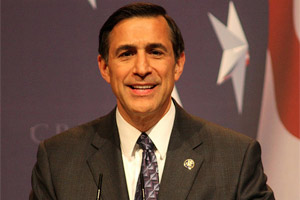
Flickr/<a href="http://www.flickr.com/photos/cultr/3265160711/">cultr.sun</a> (<a href="http://www.creativecommons.org">Creative Commons</a>).
As my colleagues Kevin Drum and Kate Sheppard have noted, a group of 700 climate scientists plans to start pushing back harder and more publicly against climate change skeptics. Kevin offers a few words of warning:
I hope these guys are well trained. They need to know the science cold, they need to be aware of the standard denialist talking points, they need to stick to the facts religiously, and they need to have good media training. They won’t be going up against amateurs and the rules of the game won’t be set by the Marquess of Queensberry.
Unfortunately, I doubt any of the preparations that Kevin suggests will actually be made. People who don’t have backgrounds in politics regularly underestimate how difficult it actually is. Climate skepticism is serious business, and it’s well-funded by some of the richest and most powerful corporations and individuals in the world. There’s real money at stake here, and the skeptics are not going to mess around or play nice. In fact, they’re probably thanking their lucky stars that this is happening, because there’s a very real chance that this will backfire on climate scientists. It will be easy for skeptics to simply point to the climate scientists’ “coming out” as proof of the conspiracy that they’ve long alleged. And there’s a good chance that some climate scientist will make a rookie mistake. You can bet that at least one of them will say something silly at a conference or on cable television that will be taken out of context, replayed on YouTube, and and which will continue to fuel the fires of denialism for the next decade and a half.
I understand why the scientists are doing this. What they were doing before (trying to focus on the science, and having faith the truth would out) wasn’t working, and they see a moral imperative to warn the world of impending disaster. It may be too little, too late.
UPDATE: Now Kate reports that the original Los Angeles Times story that launched all this was wrong: the group of 700 climate climate scientists planning to push back isn’t actually planning to push back. She also explains why that’s troubling.











